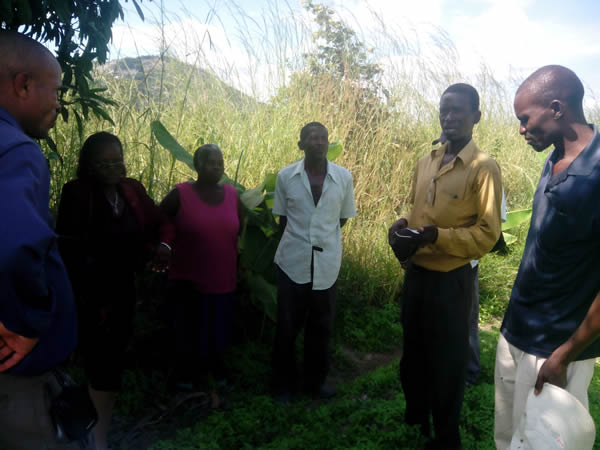Agro-Ecology: the Rich Future of Small Scale farmers in Zimbabwe

22/5/2014
Mr. Ngoni Chikowe is a small holder farmer in Kawere village, Mutoko District in Zimbabwe. He has been practicing agro ecology for several years now. He uses combination of different approaches and practices in farming and lifestyle in general; Ngoni has managed to set pace for himself and other neighboring small holder farmers in the village and nearby villages.
Through the practice of agro ecology, Mr. Chikowe says he has seen his produce increase from his with very minimal inputs compared to what he used to harvest while practicing conventional chemical-based farming. He currently uses Open Pollinated Varieties (OPVs) of maize initially distributed by the government to small scale farmers. This means he can harvest and store his own seeds directly from his farm to his seed bank hence avoiding the cost of having to buy seeds every season what hybrid-seed users have to do.
Mr. Chikowe happily explains his approaches in farming putting soil fertility and richness first, and then feeding the crops next. Like other small holder farmers in the village, he owns a few acres of land, next to a rock, not-so-arable rocky mountain in the interior rural of the district, some 200 kilometers from the countrys capital Harare.
As noted above, Mr. Chikowe uses a combination of different approaches in his farming. First the non-use of chemical farm inputs (like fertilizers and pesticides), the use of natural fertilizers like manure from his household animals, covering of the land to protect its moisture and stop weed from growing and spreading in the farm, minimal soil disturbance during preparation of his farms, water harvesting, protection of his small wetland and life fencing.
These are just some of those combined practices which together have helped transform Ngonis land, which should have not supported any dependable farming activities due to its location and size, has been turned into a rich piece of land for the owner.
Agro ecology is the type of agriculture that makes it possible to reproduce, or even improve the productive potentialities of the cultivated ecosystem, mostly independent on non-renewable resources, produce diversified and good quality food, does not contaminate the environment or people and contribute to the fight against climatic warming.
Mr. Chikowe, apart from just farming for himself and his small family, he also educates other neighboring farmers on the importance of practicing agro ecology and how that is not only beneficial for sustainable soil fertility, but also can help farmers have more harvests than using chemical in their farms. He has a demonstration farm, where, in one side plants OPVs using agro ecology practices and on the other plants hybrids and maintains them using the recommended chemicals. For years in a row, the OPVs have always outperformed the hybrids in his test farms, proving that agro-ecology can well be the better option for small holder farmers than the highly marketed hybrids.
End






















